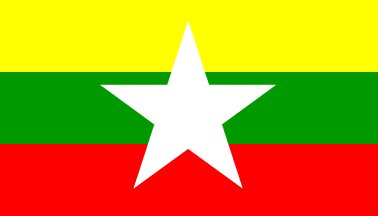Burma Sanctions Continue to Linger On
 Last Week President Obama reaffirmed the national emergency in respect to Burma (Myanmar) thereby extending the Burmese sanctions program. Regardless of this extension the U.S. has eased sanctions on Burma significantly in recent months. For example, the administration eased some of the U.S. visa restrictions imposed against Myanmar’s former military regime, and has also authorized transactions with certain blocked banks in Burma. The sanctions were extended despite the dramatic reforms taking place in Myanmar, and the rumored visit by Myanmar’s reformist President Thein Sein to the White House later this month.
Last Week President Obama reaffirmed the national emergency in respect to Burma (Myanmar) thereby extending the Burmese sanctions program. Regardless of this extension the U.S. has eased sanctions on Burma significantly in recent months. For example, the administration eased some of the U.S. visa restrictions imposed against Myanmar’s former military regime, and has also authorized transactions with certain blocked banks in Burma. The sanctions were extended despite the dramatic reforms taking place in Myanmar, and the rumored visit by Myanmar’s reformist President Thein Sein to the White House later this month.
As relations have begun to normalize sanctions targeting Burma have been eased, however, there are still concerns that, due to the human rights situation in the country, the lifting of sanctions shouldn’t come too quickly, and members of Congress have stated that the administration should maintain its current quid pro quo policy towards Burma. This policy was most vividly demonstrated when, following the release of political prisoners and of democratic leader Aung San Suu Kyi, the U.S. eased sanctions prohibiting investment in Burma. Regardless of this easing, there are still a number of officials and former officials designated on the Specially Designated Nationals and Blocked Persons List (SDN List) maintained by the United States Department of the Treasury;’s Office of Foreign Assets Control (OFAC).
As the U.S. has been slowly rolling back sanctions on Burma the EU has moved much more aggressively towards removal of sanctions, making it possible for almost complete economic ties to be reestablished between the two regions. Both the U.S. and the EU do, however, continue to maintain an arms embargo on sales of weapons to Burma. That said, the Obama administration has made it clear that before measures such those taken by the EU can be taken by the US, there must be an unconditional release of the remaining political prisoners, a severing of all military ties with North Korea and an end to the violence that has resurfaced in parts of the Southeast Asian country.
Last week’s action by President Obama should remind all those concerned with OFAC compliance that just because relations between Burma and the United States are warming that there are still sanctions considerations to be thought of when dealing with Burma. In particular, parties who may be engaged in some activity relating to Burma should be cautious of the involvement of parties on the OFAC SDN List and should at a minimum screen all Burmese parties against that List. Keep in mind that just because sanctions against Burma has been eased, the penalties for violating the remaining sanctions have not.
The author of this blog is Erich Ferrari, an attorney specializing in OFAC matters. If you have any questions please contact him at 202-280-6370 or ferrari@ferrariassociatespc.com.


